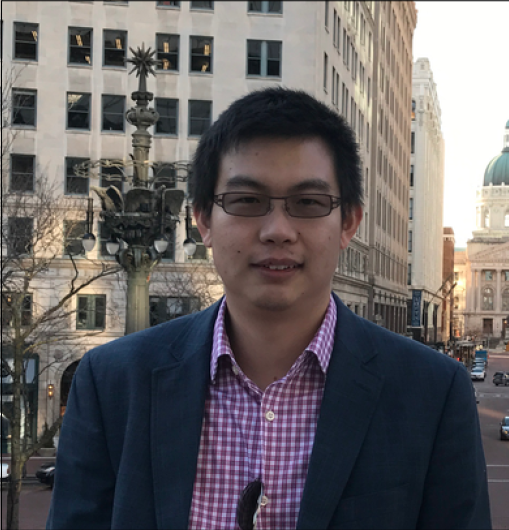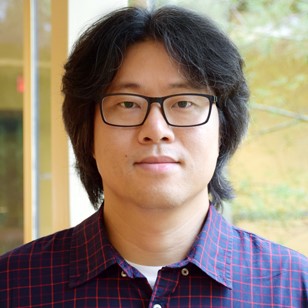|
|
Upcoming Talks
Evaluating Performance with SPEC Standard Benchmark Suites
| Speaker:Dr. Junjie Li, Research Technology,
Indiana
University
|
| When: 3:00 pm - 4:00 pm Thursday (October 12,
2017)
|
| Where: Room 161A, Smith Research Center or join
online
using ZOOM
(https://IU.zoom.us/j/679375838)
|
Abstract
The Standard Performance Evaluation Corporation (SPEC) is
an organization for
creating industry-standard benchmarks to measure various aspects of computer performance. SPEC
High
Performance Group (HPG) is a working group dedicated to develop application benchmark suites for
high
performance computers, these suites are capable of gauging performance of multiple parallel and
accelerator
programming models including MPI, OpenMP, OpenACC and OpenCL with optional energy measurement.
The latest update to Accel benchmark suite has also added support for OpenMP 4.5 with the
capability
of target offload. In this talk, I will outline features of SPEC benchmark suites and run rules,
discuss the latest benchmark results on various platforms including Xeon Phi and GPU using both
OpenMP
4.5 and OpenACC, and how Research Technology, potentially other researchers at IU, benefits from
these benchmarks.
Biography
 |
Junjie Li is a principal system analyst in Research Technology at
Indiana University. He received his PhD degree in chemical physics from the
Indiana University Bloomington (2016). During his graduate research, he was key
contributor to multiple computational chemistry methods in Gaussian quantum
chemistry package including quantum nuclear dynamics and fragment-based ab
initio molecular dynamics. At Research Technology, Junjie primarily focus on
performance tuning and user support on IU’s high performance computing
platforms. He also serves as secretary of High Performance Group (HPG) in
Standard Performance Evaluation Corporation (SPEC).
|
Previous Talks
Machine
Learning Architectures for HPC
| Speaker: Prof. Minje Kim, ISE, School of
Informatics,
Computing and Engineering
|
| When: 3:00 pm - 4:00 pm Thursday (September 14,
2017) |
| Where: Room 161A, Smith Research Center or join
online
using ZOOM (https://IU.zoom.us/j/679375838)
|
Abstract
Training machine learning models from big data using
iterative
training algorithms is one of the most computationally heavy tasks in cloud computing these
days. For
example, the job can be done involving massive (dense) matrix computations with the support from
GPU
computing. In this talk I introduce some machine learning models that are more suitable for best
utilizing HPC resources (such as KNL). First, I introduce Mixture of Local Experts (MLE), or
Modular
Neural Networks (MNN), which combine heterogenous specialized networks as modules. We look into
this
kind of models and see its potential advantages in parallel computing. Second, we also
investigate the
sample distribution of the network parameters, and their use in scheduling algorithms for neural
network
training. An immediate idea would be to update more important parameters more frequently to
achieve
faster convergence. Finally, I also introduce a binarization technique for probabilistic topic
modeling
so that the iterative training algorithm can be replaced with a non-iterative bitwise
operations, which
could be a big save of energy and time during training.
Biography
 |
Minje Kim is an assistant professor in the Dept. of
Intelligent Systems
Engineering at Indiana University. He received his PhD degree in Computer
Science from the
University of Illinois at Urbana-Champaign (2016). Before joining UIUC, he
worked as a
researcher in ETRI (a national lab in Korea) from 2006 to 2011. He did his
Bachelor’s and
Master’s studies in the Division of Information and Computer Engineering at
Ajou University
(honor) and in the Department of Computer Science and Engineering at POSTECH
(summa cum laude)
in 2004 and 2006, respectively. His research focuses on designing machine
learning models and
applying them to signal processing problems, stressing out their
computational efficiency in the
resource-constrained environments or in the implementations involving large
unorganized
datasets. He received Richard T. Cheng Endowed Fellowship from UIUC in 2011.
Google and Starkey
grants also honored his ICASSP papers as the outstanding student papers in
2013 and 2014,
respectively.
|
|
|